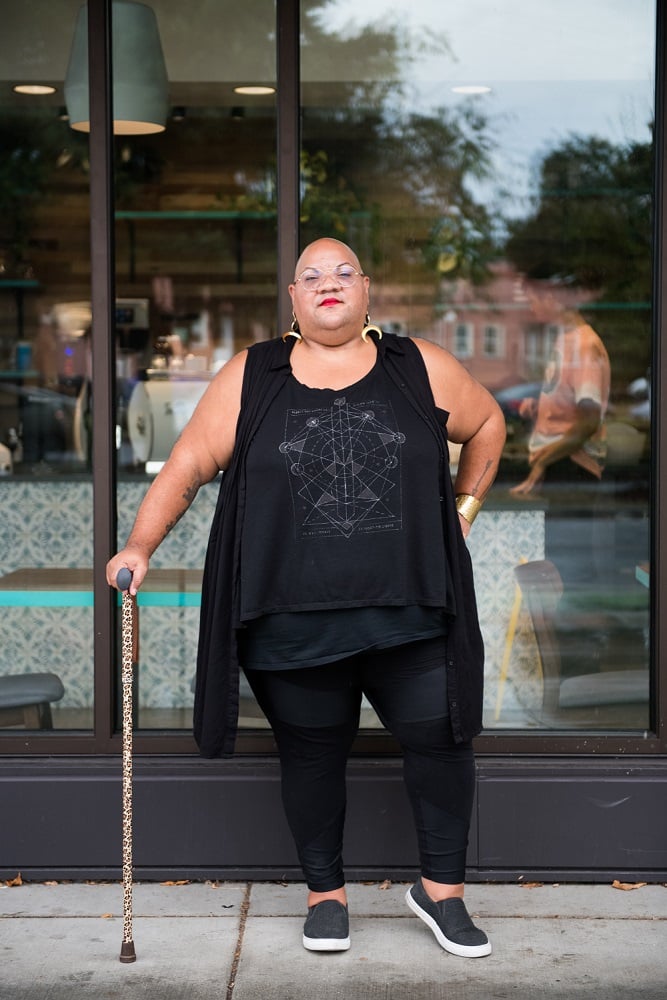Contact information and links for fast support:
- If you or someone you know needs help or would like to be referred to our Violence Prevention program, please contact us at 803-779-5121 or email us at referral@able-sc.org
- IMPORTANT: Please know that we don’t provide direct crisis services. This means that we do not have a shelter (a place for people to stay for a short time while escaping an abusive situation). We also do not have lawyers, police, therapists, or medical workers on staff. If you are in immediate danger, please call 911.
Guides and Factsheets:
Not sure if you or a loved one is being abused? Check out these helpful guides for people with disabilities.
- Self-Advocacy and Understanding Your Rights
- How to Get Help When You are Being Hurt: A Guide for Victims of Abuse and Assault with Disabilities
- Guide to Interacting with Police for People with Intellectual or Developmental Disabilities
- Advocacy with Law Enforcement and Victim Service Providers
- End Abuse of People with Disabilities: This booklet helps people know more about abuse and violence. It also offers tips for what you can do if you are being abused.
- See Something, Do Something: Prevent Sexual Assault and Domestic Violence: This guide explains how to help if you see someone being hurt or abused. It also has contact information for places nearby that may be able to help.
- Connect to Safety: Ending Violence and Abuse for People with Disabilities
For information about staff training and education for professionals who serve survivors with disabilities, email referral@able-sc.org.
What do we do?
Able SC has programs and services that address violence against South Carolinians with disabilities in three main ways. First, we help people with disabilities who have been hurt or abused to find resources, understand their legal rights, and get the support they need to heal. Able SC staff are not mandated reporters. This means that if you tell us someone is hurting you, we will never call the police or file an Adult Protective Services (APS) report unless you ask us to. Our staff offers one-on-one support that is led by the choices, goals, and needs of each individual. Second, we create easy-to-understand educational resources about relationship safety for everyone! Our customized webinars, classes, and written materials are designed to be easy for people with all kinds of disabilities to access and understand. We teach about healthy relationships, how to notice signs of abuse, and how to get help if abuse happens to you. Third, we provide training and education for professionals who serve survivors with disabilities. 1 in 3 South Carolinians has a disability– in other words, we are everywhere! Able SC can help you or your organization gain the knowledge, practical skills, and confidence you need to make your services accessible, welcoming, and affirming for people with disabilities. You can contact us at the email and phone number above for more information. Also, be sure to check out our brochures for professionals with tips and resources on accessibility.

Photo courtesy of Disabled and Here
Why is it important to learn about violence against people with disabilities?
People with disabilities have a higher risk of being abused compared to non-disabled people. Why is this? One reason is that abusers take advantage of the fact that ableist attitudes and stereotypes about people with disabilities are so common. In other words, abusers think they will not be caught or stopped from harming people who society wrongly labels as “less than.” However, people who abuse or harm others don’t always seem mean or cruel. They may even do things to help or care for the person they are abusing. People with disabilities are abused most often by people who are close to us, like caretakers, friends, family, or romantic partners. We can also be hurt by people we don’t know very well, like medical staff, care workers, or transport drivers. People with disabilities are often targets of abuse in care facilities, group homes, hospitals, or other places where we are isolated from people outside who might see the abuse and try to stop it. Abusers may use fear, violence, or even take away medical devices or medicines in order to control or hurt someone with a disability. No matter who is doing it or where it’s happening, abuse is never the victim’s fault. If you are a person with a disability or health condition who has been hurt or abused: you deserve safety, you deserve to be listened to, and you are not alone!
Harmful stereotypes about people with disabilities say that we can’t speak for ourselves, and we can’t make our own decisions. Some even assume that we don’t experience abuse at all. However, nothing could be further from the truth: people with disabilities who have survived domestic violence and/or sexual assault are the experts in our own experiences! We know what we’ve lived through, we know what accommodations and supports work best for us, and we know what we need in order to heal. More than 75% of our staff at Able SC are people with disabilities, and many of us know from personal experience how bad it feels to be excluded from services we need access to. Able SC staff help survivors with disabilities in South Carolina find resources for safety and healing and advocate for their rights to the same access to services as non-disabled people.
Places and systems that exist to address the impact of abuse and violence can already be confusing and overwhelming to deal with– like homeless shelters, domestic violence crisis centers, therapy services, court systems, and hospitals. It can be even harder for those of us with disabilities because lots of places don’t know how to provide accommodations for us. Some places aren’t even aware that their websites, intake processes, buildings, or policies make it very hard for people with disabilities to use their services. Agencies and professionals that serve people with disabilities who are victims of abuse and violence must work to understand the needs and experiences of survivors with disabilities and break down barriers wherever they are present within their organizations. The best way to learn about disability is from people with disabilities themselves, and at Able SC we are grateful for the chance to use our lived experience as people with disabilities to be a resource for professionals who want to make sure they are providing equitable services to South Carolinians with disabilities!
Read about our current projects:
Bridge to Safety Collaboration
From 2018 to the project's end in 2023, Able SC worked in partnership with Pathways to Healing and YWCA of the Upper Lowlands to improve access to services for the survivors with disabilities we serve at each of our organizations. This multi-year project, funded through the US Department of Justice’s Office on Violence Against Women, allowed representatives from all three organizations to collaborate and create permanent changes within all three organizations so that our services are more welcoming, safe, and accessible for people with disabilities who have experienced violence.
Promoting Access to Safe Services (PASS) Program
The PASS program is a project funded by the Richland County Government. Begun in 2022, its goal is to make it easier and safer for people with disabilities in Richland County who have been victims of crime or abuse to access the services they need.
PASS will fund training for service providers who work with survivors with disabilities, like medical staff, first responders, health department staff, and non-profits/shelters that work with survivors of abuse.
PASS will also create written materials to help people with disabilities know about their legal rights, and where to find helpful resources if they are the victim of abuse or crime.
If you would like information about no-cost training for you or your organization, we want to talk to you! Please contact us using the information at the top of this page.
Violence Against Women Act (VAWA) Program
The VAWA program is funded through the South Carolina Attorney General's Office. Begun in 2022, its goal is to enhance the effectiveness of victim service providers and law enforcement when serving survivors with intellectual or developmental disabilities or other disabilities. VAWA funds training opportunities for law enforcement, emergency service personnel, victim service providers, and more. The VAWA program has also created written materials to teach law enforcement and victim service providers to communicate effectively with survivors with I/DD and other disabilities.
South Carolina Coalition Against Domestic Violence and Sexual Assault (SCCADVASA) Collaboration
Able SC is collaborating with SCCADVASA to offer training and technical assistance in serving survivors with disabilities, including architectural and website accessibility assessments. SCCADVASA staff will provide feedback on information and resources developed for victim advocates and disseminate materials. Able SC and SCCADVASA work together as members of the Richland County Domestic Violence Coordinating Council (RCDVCC), on preventing domestic abuse and increasing access to services for survivors in Richland County. This community network works to minimize gaps in knowledge about various populations of survivors served.


